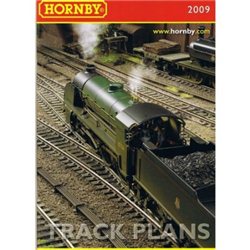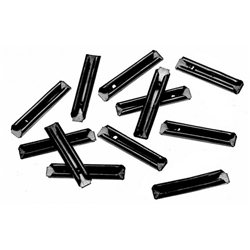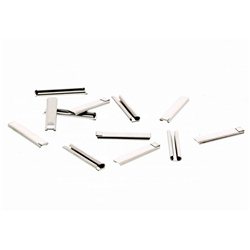Felix Pole was an ambitious employee of the Great Western Railway. Born in 1877, by the age of 27 he was working in...
No products
Product successfully added to your shopping cart
There are 0 items in your cart. There is 1 item in your cart.
Search Tips
What is Hornby Dublo?
Hornby Dublo was an early brand name for models produced by the company that we now all know as Hornby. The brand was launched in 1938 and featured model trains that were roughly half the size of the 0 gauge models that had dominated the model railway industry for many years previously. This new manageable and affordable gauge brought the hobby that we all know and love to the masses.
WW2 saw a temporary halt to the production of Hornby Dublo models but the brand soon re-established itself afterwards all be it without clockwork models. In 1959 the three-rail track system was also dropped to keep the company current and competitive but eventually, Tri-ang's plastic-bodied models started to prove significantly popular with enthusiasts and Hornby Dublo started to fall out of favour with consumers.
In 1964 Meccano Ltd (who owned Hornby Dublo) was taken over by Lines Bros (who owned Rovex Scale Models Ltd who in turn were the producers of Tri-ang) and in 1965 the company was rebranded Tri-ang Hornby.
The new Tri-ang Hornby brand continued manufacturing models that closely resembled the original Tri-ang offerings, however, some Hornby Dublo models were to enjoy a new lease of life thanks to some of their tooling being purchased by Wrenn (who was conveniently also owned by Lines Bros) and they launched their Tri-ang Wrenn range in 1967.
The parent company that owned Tri-ang Hornby was eventually split up in 1971 and Tri-ang Hornby continued under their own steam. Still operating from their factory in Margate the company re-branded once more to become Hornby Railways and set about improving their model's specifications to make them more prototypical and appeal to a wider audience by introducing finer scale wheels, separately fitted detail and enhanced paintwork.
The Hornby Dublo story seems to be one of acquisitions and re-brands, and that's true enough but after a turbulent journey and any influence from Meccano a mere distant memory, in 2020, they're finally turning a profit and should be around for a long time to come, even if it is only the name that survives.
Click here to receive the tips weekly in your mailbox. You can unsubscribe at any time.










